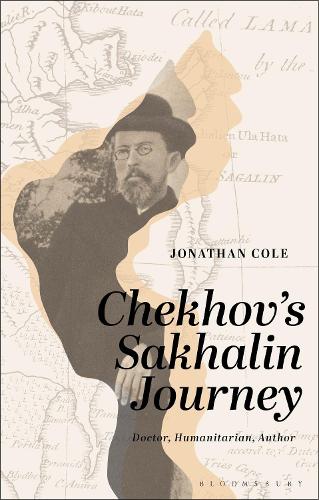
Chekhovs Sakhalin Journey: Doctor, Humanitarian, Author
(Paperback)
Available Formats
Publishing Details
Chekhovs Sakhalin Journey: Doctor, Humanitarian, Author
By (Author) Jonathan Cole
Bloomsbury Publishing PLC
Bloomsbury Academic
8th February 2024
United Kingdom
Classifications
Tertiary Education
Non Fiction
Literary studies: plays and playwrights
Theatre studies
915.77
Physical Properties
Paperback
240
Width 136mm, Height 214mm, Spine 12mm
280g
Description
Chekhov often said that I am a doctor by trade and sometimes I do literary work in my free time, a surprising claim, given his status as a giant of 20th century drama. This literary-biographical study uncovers new sides to him, as both a medical professional and humanitarian, and tells the story of Chekhov's trip to Sakhalin Island in the harsh wastes of Siberia. Anton Chekhov practiced medicine for most of his life and engaged in humanitarian work which took him away from writing for months. He placed one such trip though, across the unforgiving terrain of Siberia to write about the penal island of Sakhalin, above all others. Chekhov's Sakhalin Journey, written by a neuroscientist and practicing clinician, uses this trip and Chekhov's own account of it to shed light on hitherto overlooked aspects of his life. In doing so, it shows that to understand the man we need his medicine as well as his literature, and we need to assess his life from his perspective as well as ours.
Author Bio
Jonathan Cole is a professor of clinical neuroscience at University Hospitals, Dorset and the University of Bournemouth. He trained in Oxford and the Middlesex Hospital, London. As a medical student he spent time seeing patients in the Bronx with Oliver Sacks, who remained a friend. In addition to 200 or so academic papers/chapters, he has also explored first person, narrative accounts of neurological conditions. He has published books on severe loss of sensation, Pride and a Daily Marathon and Losing Touch; spinal cord injury, Still Lives; and facial disfigurement, About Face and The Invisible Smile, all describing what it is like to live with the conditions. His work was used in two plays by Peter Brook, The Man Who and The Valley of Astonishment. He also made an award winning BBC Horizon, The Man Who Lost His Body, as well as many other TV science documentaries in the UK, Europe, Australia and the US. He has appeared on BBC Start The Week, Thinking Allowed, Night Waves (with Jonathan Miller), All in the Mind, Does He Take Sugar, BBC World Service (with Doris Lessing), Front Row, (with Siobhan Davies) and NPR (USA). His books have been widely reviewed: Sunday Times, Observer, a Guardian feature, Nature, TLS, THES, Brain, JAMA, Annals Neurology, New Scientist, etc.
